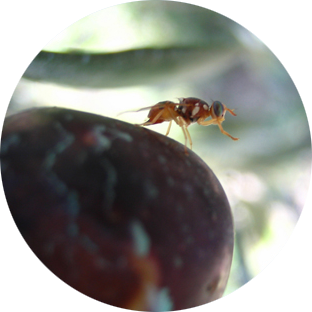Comprehensive pest management
Identification, monitoring and control of pests, especially agricultural and forestry.
Identification and characterization of parasitic species that cause pests in urban, agricultural, livestock, forest and / or garden environments. The ecological and population study of these organisms is essential for the design of effective monitoring and control systems, especially in organic agriculture /farming, where the application of biological agents as a pest control strategy is essential. Biological control through natural predators, parasitoids and entomopathogens reduces and avoids, whenever possible, the use of chemical agents such as pesticides and mitigates the negative effects they may have on crops and the appearance of resistance.
On the other hand, the Zoology Laboratory of the UIB has experience in the design of specialized traps with the possibility of including a sensor network and support software. Evaluation studies of traps and attractants (pheromones) are also carried out to determine the most effective methods against different pests.
Finally, and as an added value, the necessary equipment is available to carry out tests with pesticides to determine the optimal concentrations and the best products for the protection of plants and animals.
OUR EXPERIENCE

A research group from the UIB has developed an electronic trap model for the monitoring and control of the main plague that affects the cultivation of the olive tree, the olive fly (Bactrocera oleae). This system is equipped with cameras and sensors that compute the number of captures and record the atmospheric conditions of the area. The information generated can be consulted in real time from any computer or mobile device, both the producer and the plague control responsible technicians.
This technology, resulting from the European project FruitFlyNet, in which the Biology Department of the UIB has participated, is applicable to other tephritidae insects such as the Mediterranean fruit fly (Ceratitis capitata).
In collaboration with:

